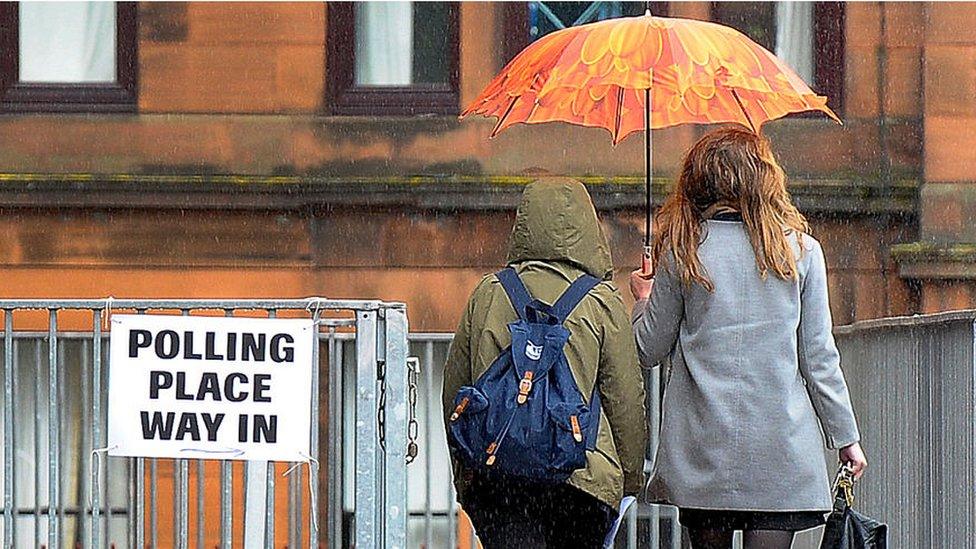General election 2019: Will this be a Brexit election?
- Published
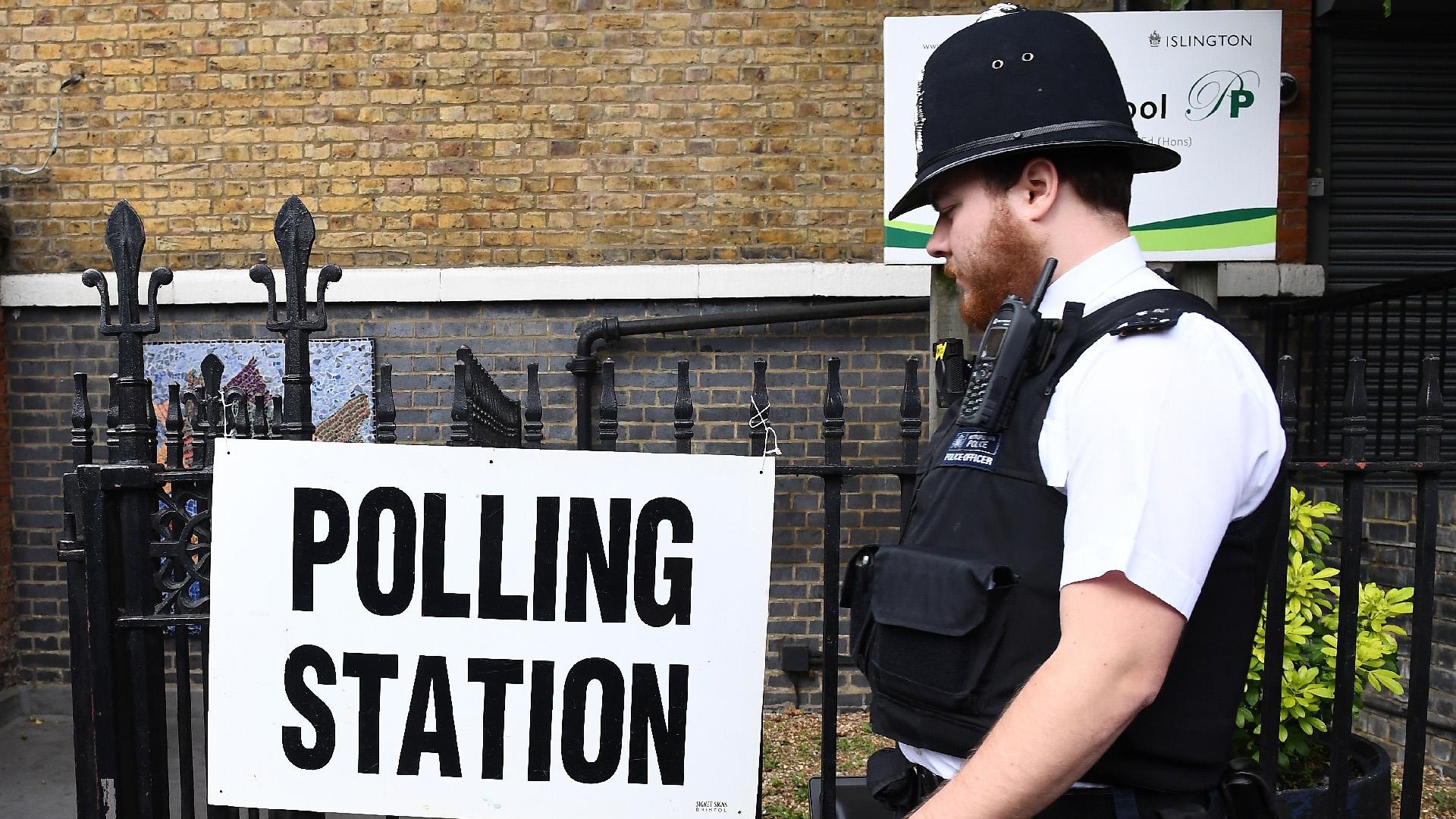
The UK will go to the polls next month because of disagreements in the House of Commons about Brexit.
But to what extent will the country's exit from the EU be at the forefront of voters' minds? And will the outcome give us a clear indication of what most voters next want to happen about Brexit?
There are three ways we can address this question:
What do voters say?
The first method is to ask voters themselves which issues they think are the most important.
According to Ipsos Mori's regular monthly survey, Brexit has been by far and away voters' biggest concern throughout the last 12 months.
Indeed, if voters are simply asked to name one issue, Brexit clearly comes out top. In Ipsos Mori's most recent survey in September, no less than 57% named it as the most important issue. No other topic was mentioned by more than 3%.
However, when people are given the chance to name more than one topic, the NHS emerges as an important concern too. More than a third (36%) told Ipsos Mori that this was one of the most important issues. Crime (22%) emerges as relatively important too.
This pattern is reflected in polling conducted since the election was called.
As many as 39% told YouGov that "Britain leaving the EU" would be the most important issue in determining how they will vote. Health came a distant second, on just 14%.
However, in those polls which invite people to name more than one topic, the NHS vies with Brexit as the most commonly named concern.
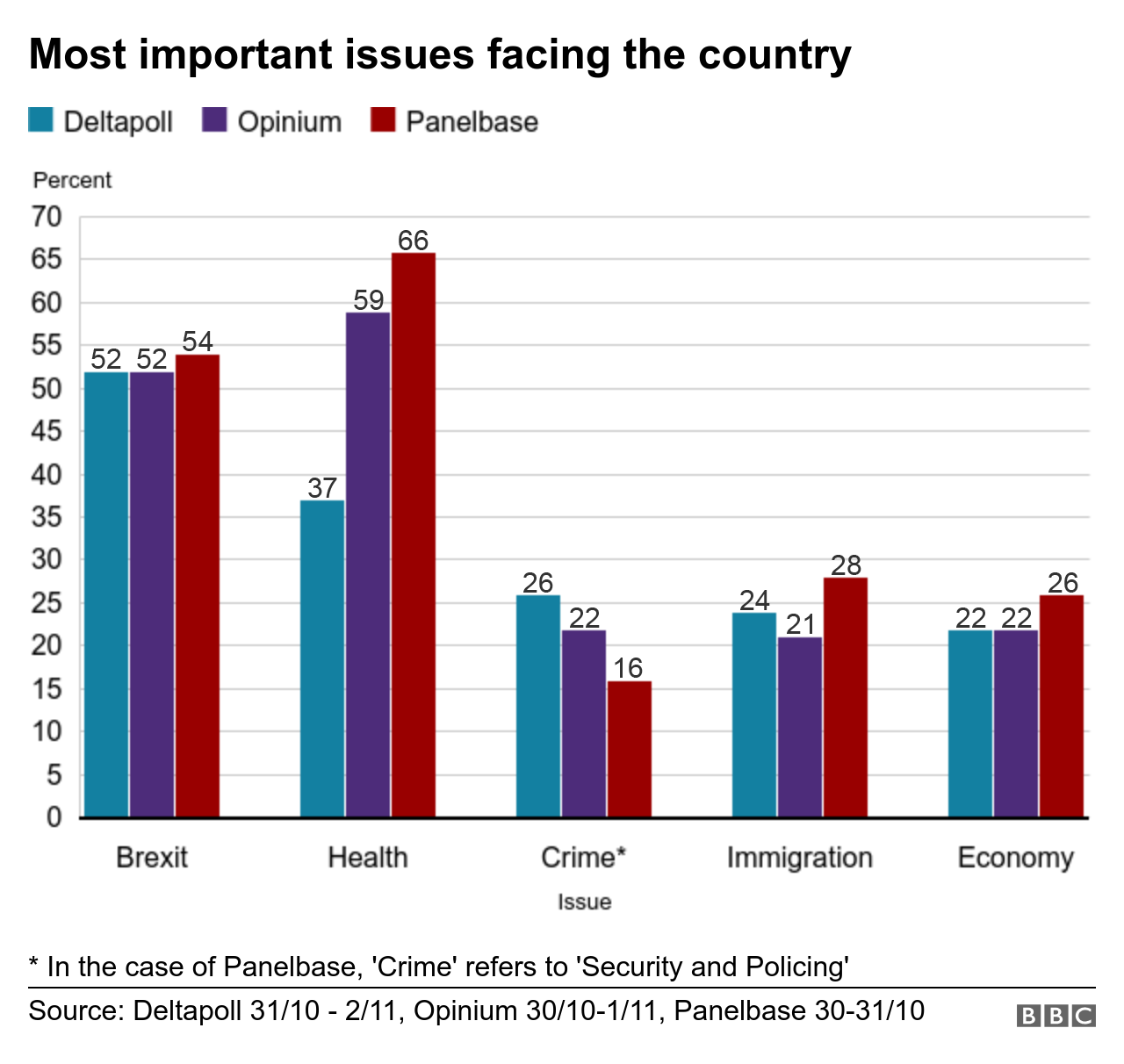
Indeed, some of them suggest that more voters are concerned about health than Brexit.
Crime, immigration and the economy, are also important to about a quarter of voters. However, the economy is now much less likely to be named than it was in the wake of the 2008 financial crash.
How do different parties' voters feel?
However, Brexit matters more to some parties' voters than to others.
All polls suggest it ranks highest among those who say they will vote for the Conservatives or the Brexit Party. The level of concern is lowest among Labour supporters.
For example, according to YouGov, 73% of Brexit Party supporters say Brexit will be the most important issue in deciding how to vote. That view is shared by 56% of those who intend to vote Conservative.
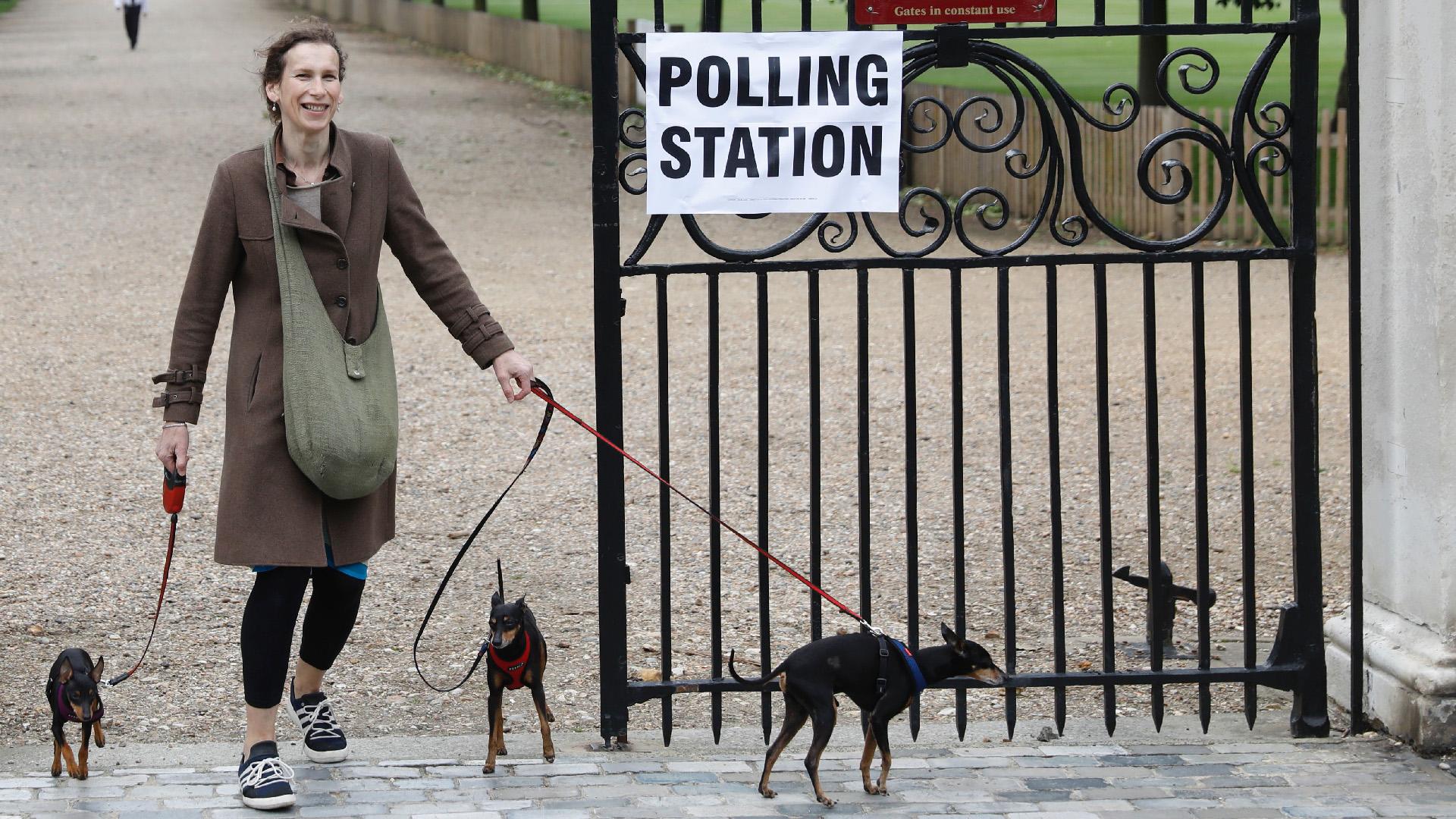
Just over half of Liberal Democrats (51%) think Brexit is the most important issue.
However, only 21% of Labour voters agree. Indeed, Labour supporters are rather more likely to name health (28%).
Brexit is also much more important for Leave voters (53%) than Remain supporters (32%).
These figures may help explain why, in the opening days of the election, Labour has been keen to talk about the NHS rather than Brexit.
Voting for or against Brexit?
That brings us to our second point.
To what extent are those voters who back Leave expressing support for parties in favour of leaving the EU? And how many Remain supporters are backing a party that wants another referendum?
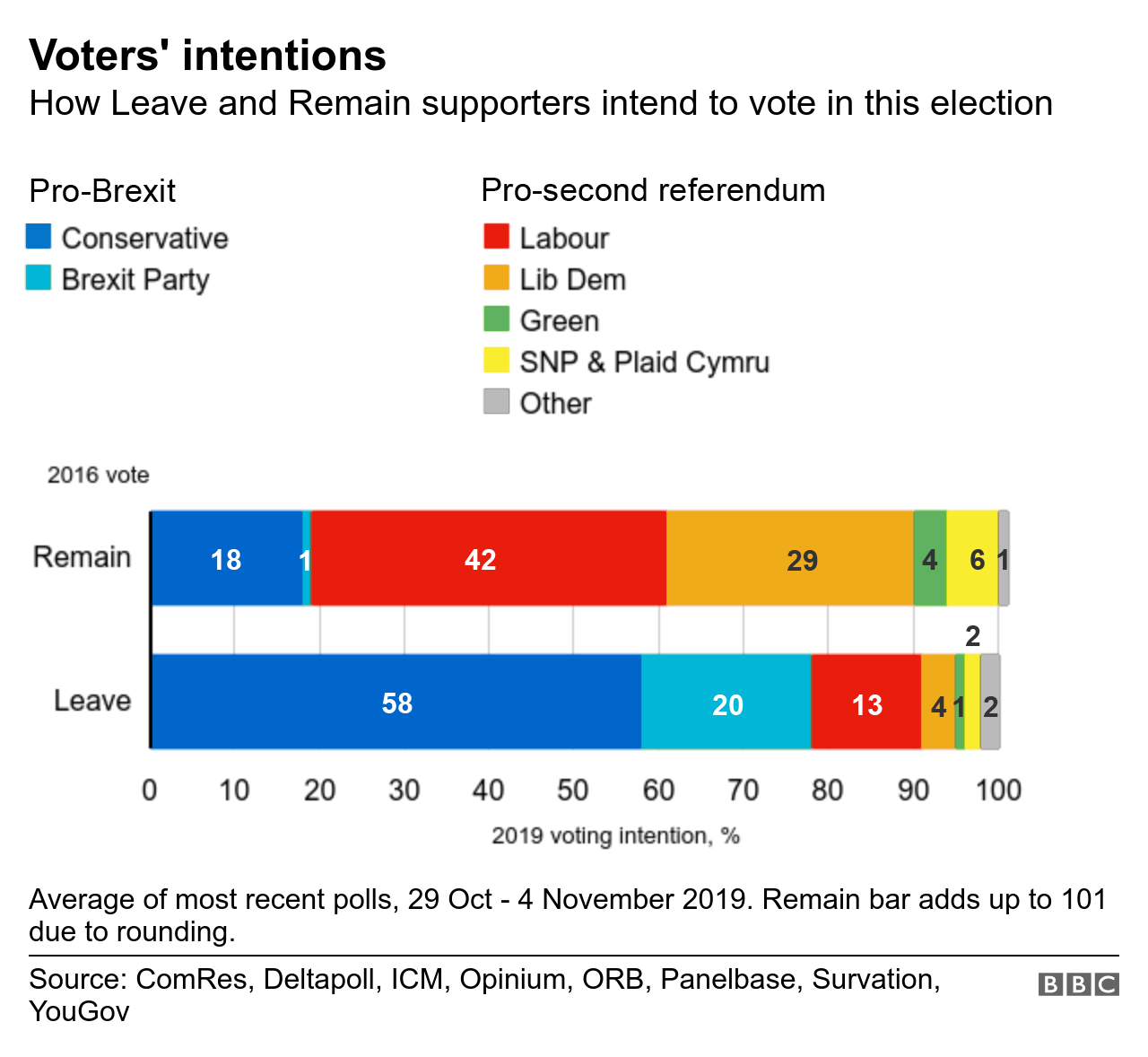
More than three-quarters (78%) of those who voted Leave plan to vote for the Brexit Party, or the Conservatives.
And 81% of Remain supporters back parties which favour a second referendum.
So, although Remain supporters are less likely to say Brexit is an important issue, they are at least as likely as Leave voters to back a party which shares their stance.
However, the Remain vote is scattered across a wider range of parties, perhaps reflecting people's views on other issues.
Overall, therefore, only one in five of those who voted in the EU referendum in 2016, is backing a party whose views on Brexit appear to be at odds with their vote in 2016.


Has Brexit become more important?
If how most people vote reflects their views on Brexit - albeit alongside other issues too - is this any more the case now than in 2017?
That is the third possible approach to our question.
Of course, the positions of the parties on Brexit were not the same in 2017 as they are now.
For example, while Labour did appear to favour a "softer" Brexit than did the Conservatives, the party was not then in favour of a second referendum.
But bearing that in mind, it seems that in 2019 fewer voters than in 2017 are voting for parties whose views on Brexit might not be in line with their own.
According to the British Election Study, 23% of those who voted Remain backed the Conservatives or UKIP in 2017. Meanwhile, as many as one in three Leave supporters voted for one of the parties that now favour a second referendum.
As such, more than a quarter (28%) of those who voted in the EU referendum voted at the 2017 election for a party that may not have shared their view on Brexit.
Now, ahead of the 2019 election, the proportion at 20% is clearly lower - especially so among those who voted Leave.
Brexit may not be the only issue in this election.
However, it is clearly helping to shape how people vote - even more so than it did two years ago.

About this piece
This analysis piece was commissioned by the BBC from an expert working for an outside organisation.
Further details of the research on which it is based are available here, external.
Sir John Curtice, external is professor of politics, Strathclyde University, and senior research fellow at NatCen Social Research, external and The UK in a Changing Europe, external.

Edited by Duncan Walker
Charts by Tom Housden
- Published28 October 2019
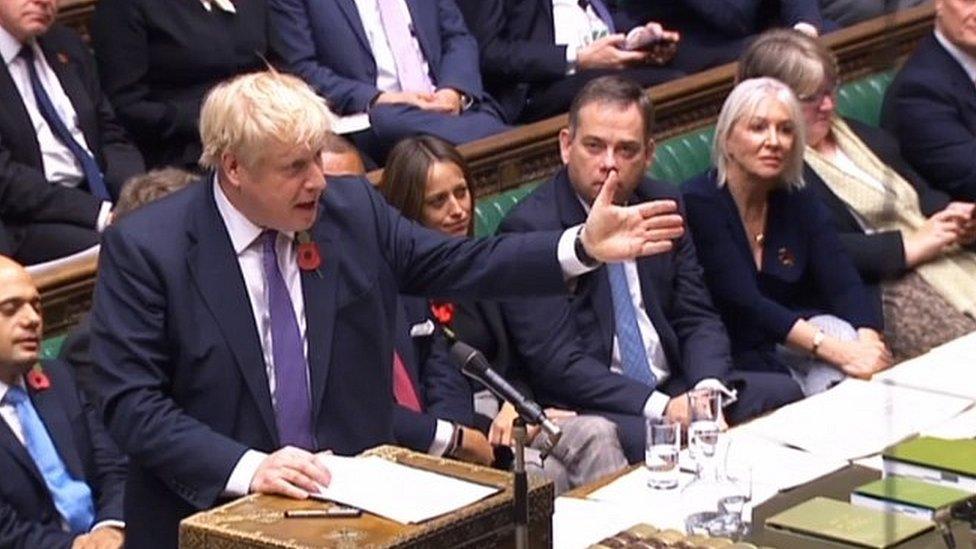
- Published30 October 2019
